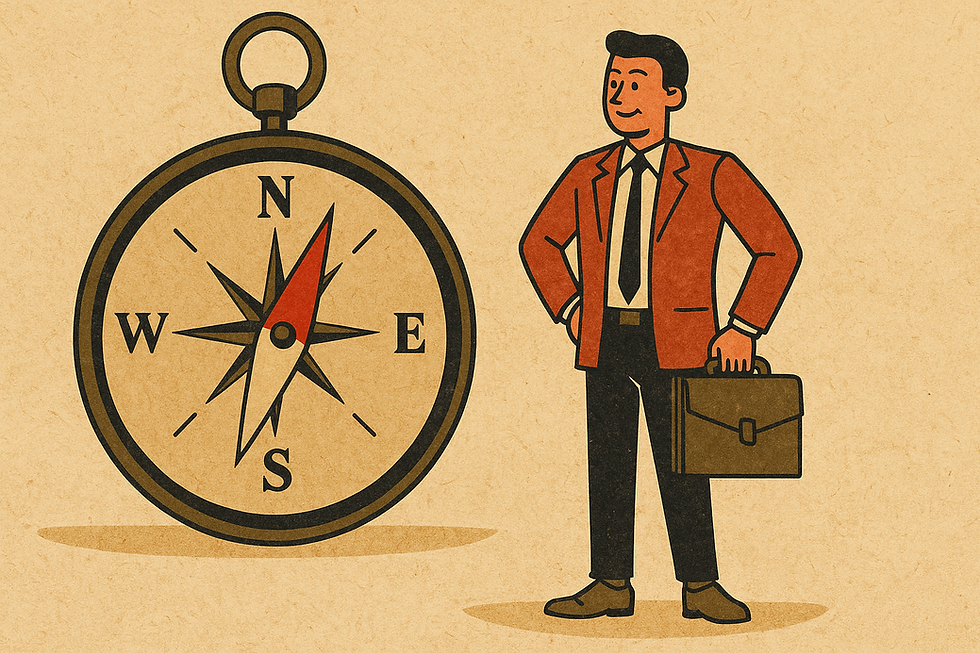How to Pick the Right First Hire (And Not Regret It in 6 Months)
- Frank Dappah

- May 31, 2025
- 3 min read
Hiring early is risky. This guide explains how to prioritize role needs, culture fit, and flexibility—plus gives a simple interview framework for solo founders making their first hire.
Hiring your first employee might feel like putting your entire company on a Tinder date and hoping it turns into a happy marriage. When you're a solo founder or running on a lean team, your first hire isn't just about getting help—it's about multiplying impact, extending your runway, and preserving your sanity.
But get it wrong, and six months later you’ll be Googling “how to fire your only employee without setting the office on fire.”
Here’s how to do it right.
Step One: Get Honest About What You Actually Need
Most founders rush to hire “a generalist” or “someone who can wear many hats.” Translation: “I’m drowning and need someone to do all the stuff I don’t want to do.” Bad move.
According to Paul Graham, “The most important hires you make early on are not just people who can do the work—but people who can figure out what work actually matters.”
Start by identifying the function that most directly drives your next key business milestone. Is it sales? Product development? Operations?
According to a First Round survey, 74% of failed early hires were due to mismatched role expectations—not lack of skills.
Step Two: Culture Fit Over Rockstar Résumé
This isn’t Google. You’re not hiring for prestige, you’re hiring for alignment.
And no, “culture fit” doesn’t mean hiring someone who laughs at your jokes. It means someone whose values match the way your company operates now—not the fantasy version you pitched in your last deck.
LinkedIn’s guide on hiring for culture fit notes that early employees often set the tone for the next 10. So if you're the type who works odd hours and values directness, hire someone who thrives in that environment—not someone who expects polished onboarding and a Slack full of emojis.
Step Three: Test Before You Invest
One of the smartest ways to reduce hiring regret? Don’t commit immediately.
Freelance trials or project-based contracts allow both sides to evaluate the fit before jumping into a full-time relationship.
In fact, Upwork’s 2024 Future Workforce Report found that over 53% of startups now hire their first team members on a contract-to-hire basis.
Set up a small, clearly scoped paid project related to the role. Observe not just the results—but how the candidate communicates, handles feedback, and manages ambiguity.
Step Four: Use This 3-Part Interview Framework
Solo founders often wing interviews. Instead, stick to a simple but effective 3-part framework:
Signal Check: Have they done anything similar before?
Scenario Simulation: Can they solve a relevant problem in real-time?
Values Match: Do their working styles and ethics align with yours?
Ask things like:
“Tell me about a time you solved a problem without enough information.”
“How do you prefer to receive feedback—direct and fast, or thoughtful and periodic?”
“What do you need in a work environment to do your best work?”
If they say “snacks,” end the call.
Step Five: Make the Offer and Make It ClearOnce you're confident, move fast. But don’t just send a DocuSign and a GIF.
Spell out:
Compensation (including equity, if any)
Scope of responsibilities
Performance expectations over the first 90 days
Use a clear employment agreement template and offer a “mutual check-in” clause after 3 months to revisit fit and goals.
Founders who document role expectations before hire report 41% lower turnover in the first year, according to Gusto.
Your first hire will either be your rocket fuel or your anchor. Take the time to define the role, assess real fit (not just résumé glitz), and structure the relationship with clarity from day one.
And remember: It’s not about finding the “perfect” person. It’s about finding the right person for your startup, right now.
Startups don’t fail because they couldn’t build a product. They fail because they couldn’t build a team.” — Ben Horowitz
.png)















Comments